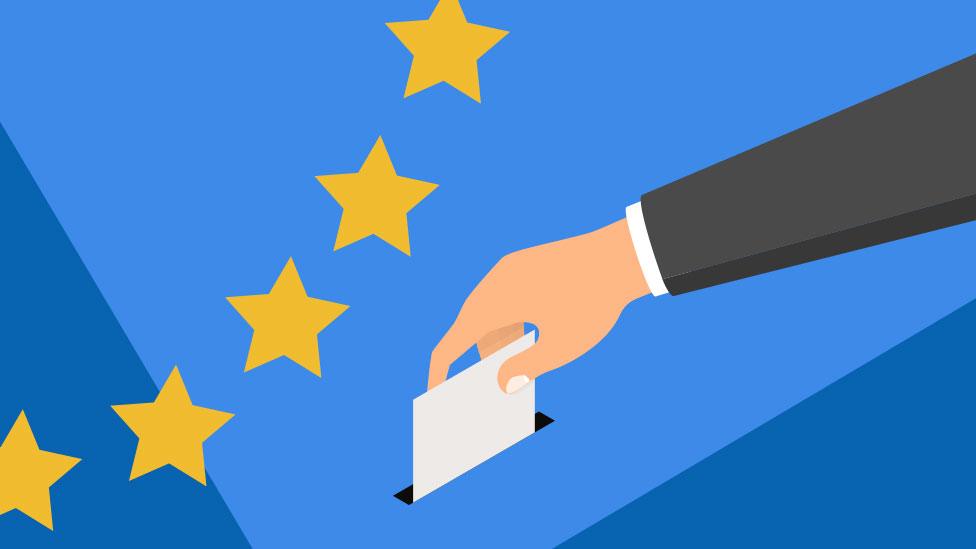European elections 2019: People to look out for
- Published
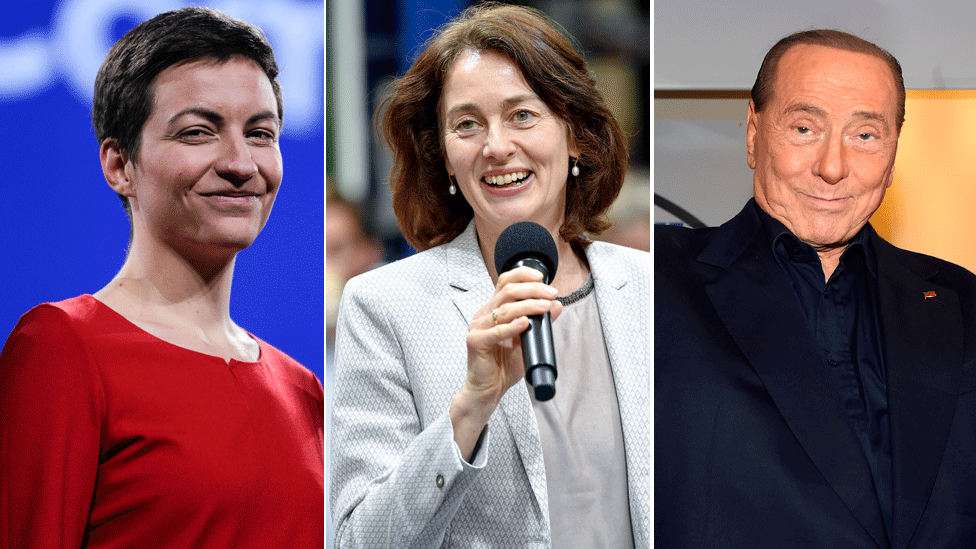
Ska Keller of the European Greens, Katarina Barley of the Socialists and Democrats and ex-Italy Prime Minister Silvio Berlusconi
A dictator's granddaughter, a controversial Brexiteer and a young Pirate - the last batch of MEPs included some memorable characters, and the new intake may be just as colourful.
Voters across the EU have cast their ballots in the 2019 elections, ushering in a new chapter of politics in the 28-member bloc.
The winning candidates are set to hold positions in the European Parliament for the next five years.
As MEPs, they will have the power to approve, amend or reject EU legislation, meaning their votes will affect policies on almost everything, from migration to the environment.
Here are some of the politicians to look out for:
Silvio Berlusconi: Controversial Italian veteran
He is no stranger to European politics.
The 82-year-old, who served three times as Italian prime minister, decided to return to Brussels, where he previously served as an MEP at the turn of the century.
Berlusconi stepped down as prime minister in 2011, partly because of his involvement in so-called "bunga bunga" sex scandals.
This was the billionaire businessman's first bid for election since being found guilty of tax fraud in 2013.
Speaking to members of his centre-right Forza Italia (Go Italy) party in March, he said he wanted "a much more united Europe, a Europe with only one foreign policy, with only one defence policy".
He argued that by uniting its armed forces, Europe could become a "world military power".
Jordan Bardella: Fresh-faced champion of France's far-right
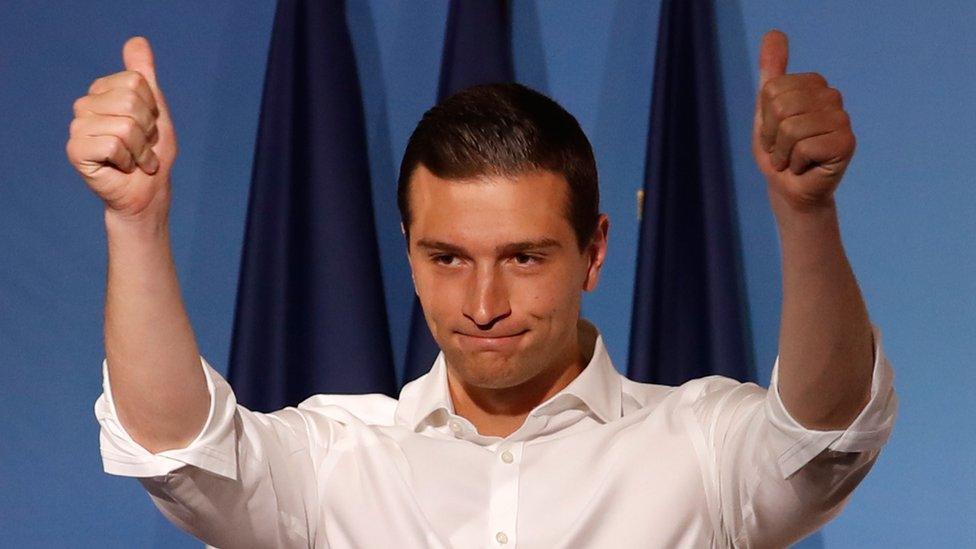
Mr Bardella says his party's goal is to protect people from globalisation
The 23-year-old is seen as the rising star of the far right in France.
The lead candidate for Marine Le Pen's anti-immigration National Rally, Mr Bardella is part of efforts to soften the party's image and attract youth voters.
He joined Ms Le Pen's National Front aged 16 and went on to lead its youth movement. His rise continued when the party was rebranded as the National Rally, following Ms Le Pen's 2017 French election defeat.
Mr Bardella says his party's goal is to protect people from globalisation.
"Progress today is called localism. It's called defending borders. It's called protectionism," he told the Associated Press news agency.
Oriol Junqueras: Jailed Catalan separatist
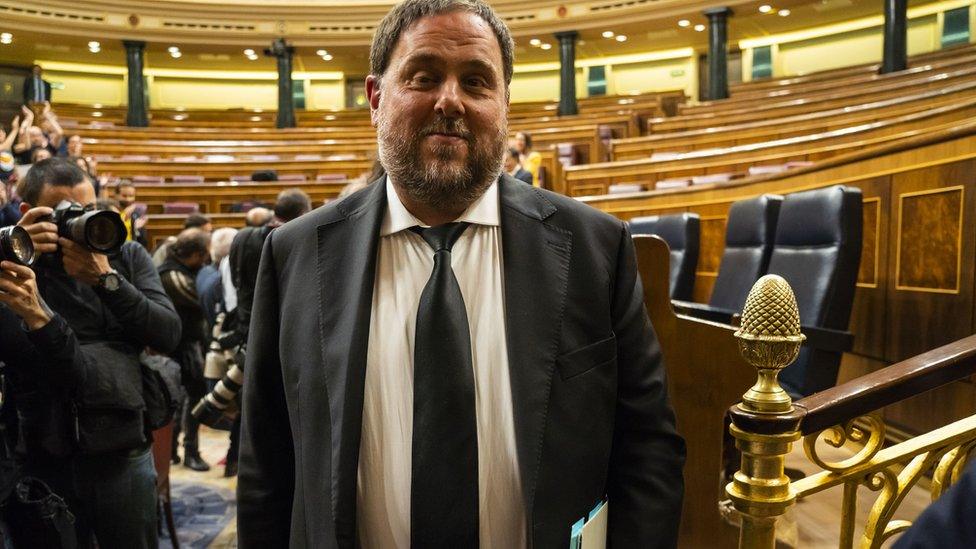
Mr Junqueras is on trial for his role in Catalonia's 2017 push for independence
He might be behind bars, but that hasn't stopped Mr Junqueras from running in the European elections.
He is the lead candidate for the European Free Alliance, which says it wants to "build a Europe of all peoples".
He is accused of rebellion, sedition and misuse of public funds over his role in Catalonia's push for independence from Spain in 2017.
The EFA's manifesto promotes self-determination and language diversity,, external and accuses "centralised states" of exploiting "some regions, peoples and stateless nations".
Nathalie Loiseau: Diplomat heading Macron's Renaissance
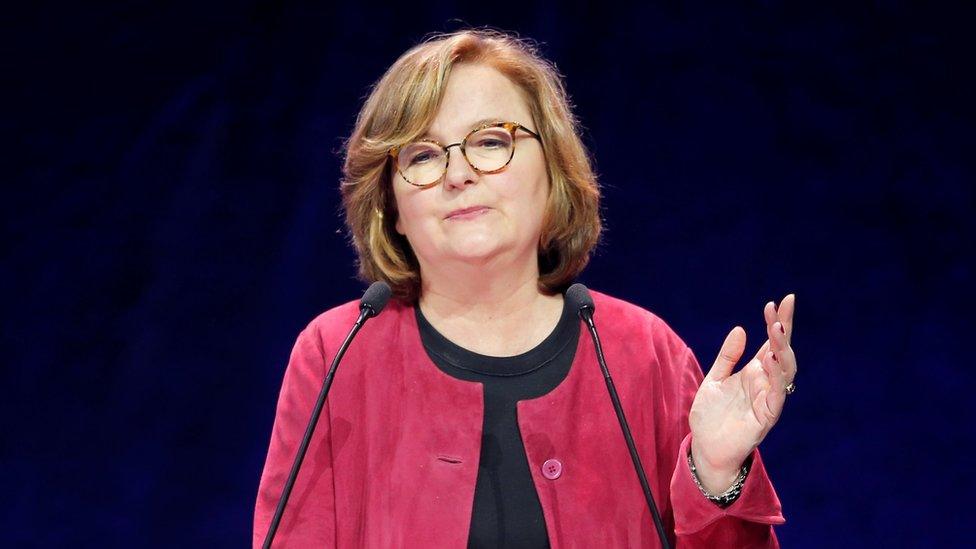
Last month it emerged that Ms Loiseau had campaigned on a far-right student union list in 1984
The experienced politician stood on a centrist, pro-EU platform, but faced controversy on the campaign trail over previous links to the far right.
Ms Loiseau headed the elite Ecole Nationale d'Administration (ENA) - a college specialised in selecting and training leaders - before joining French President Emmanuel Macron's government.
She resigned as France's European affairs minister to become lead candidate for Mr Macron's La République En Marche (LREM), which adopted the name "Renaissance" for this campaign.
An outspoken critic of Brexit, she sparked controversy last month when it was revealed that she had campaigned on a far-right student union list back in 1984.
Robert Biedron: Polish progressive
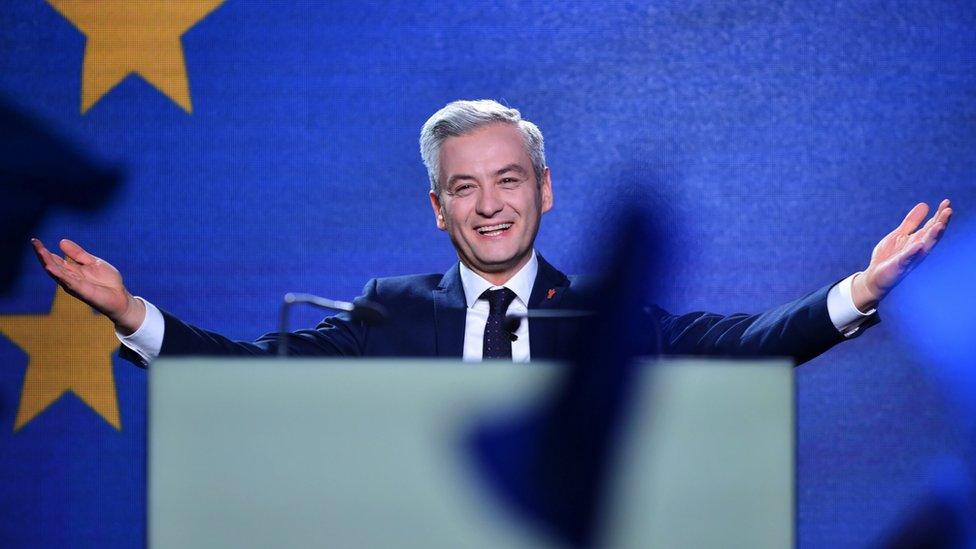
Mr Biedron campaigns for LGBT and women's rights
The openly gay former mayor is a popular Polish progressive with a history of dissent against conservatives, in a deeply Catholic country.
Mr Biedron, 43, heads the pro-EU Wiosna (Spring), which campaigns to improve women's rights, increase wages and switch to renewable energy sources.
He wants to see a complete separation of church and state and broaden access to abortion.
He has come under fire from some for refusing to join forces with Poland's opposition European Coalition, led by the centrist Civic Platform.
Critics say his position has hurt efforts to counter the ruling Eurosceptic Law and Justice Party (PiS).
Thierry Baudet: Rising star of Dutch populism
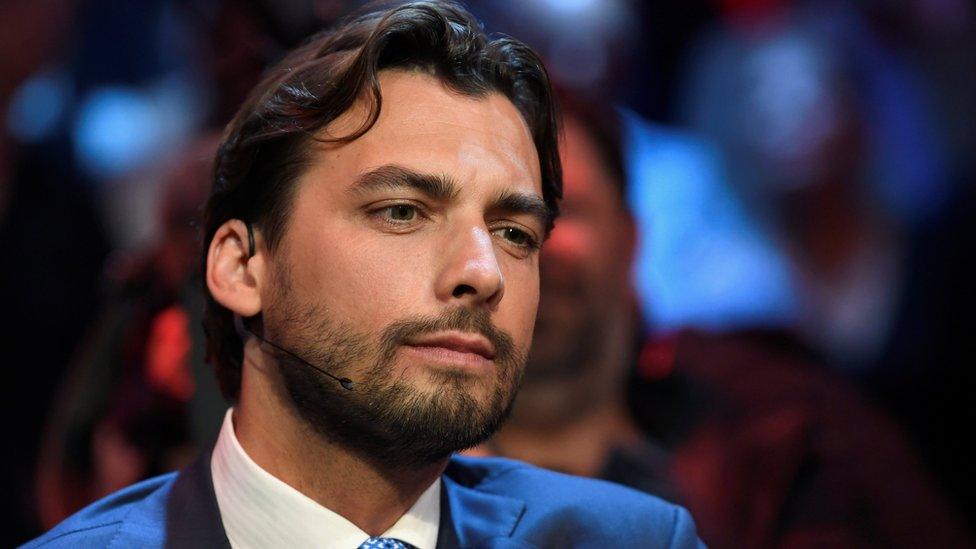
Mr Baudet wants the Netherlands to leave the EU
The political novice has taken Dutch politics by storm with his outspoken views on nationalism, race and gender.
Mr Baudet, 36, has pushed for "Dutch first" policies with his Forum for Democracy party.
He wants the Netherlands to leave the EU and has blamed immigration for what he sees as a decline in traditional values.
He has likened outgoing European Commission President Jean-Claude Juncker to Hitler and Napoleon in their dislike of Russia.
"The power-hungry of Europe legitimise the centralisation of power in Brussels because of some great enemy [Russia] and I don't see it," he said in a recent debate.
Katarina Barley: German justice minister taking on social media
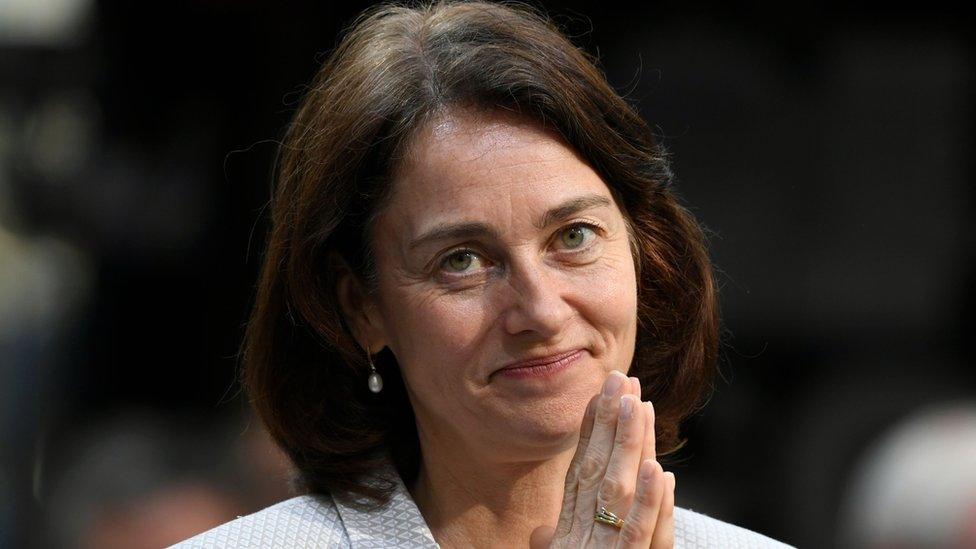
Ms Barley has used the European election campaign to talk about data privacy
The German justice minister says she wants Europe to unite and become stronger, as she eyes tougher regulations on tech companies.
Ms Barley, 49, is the top candidate for Germany's centre-left Social Democrats.
She is an experienced politician who holds both German and British citizenship.
She used the European election campaign to talk about data privacy, calling on tech giants such as Facebook and Amazon to do more or face fines.
Ska Keller: German Green vowing to battle corporations
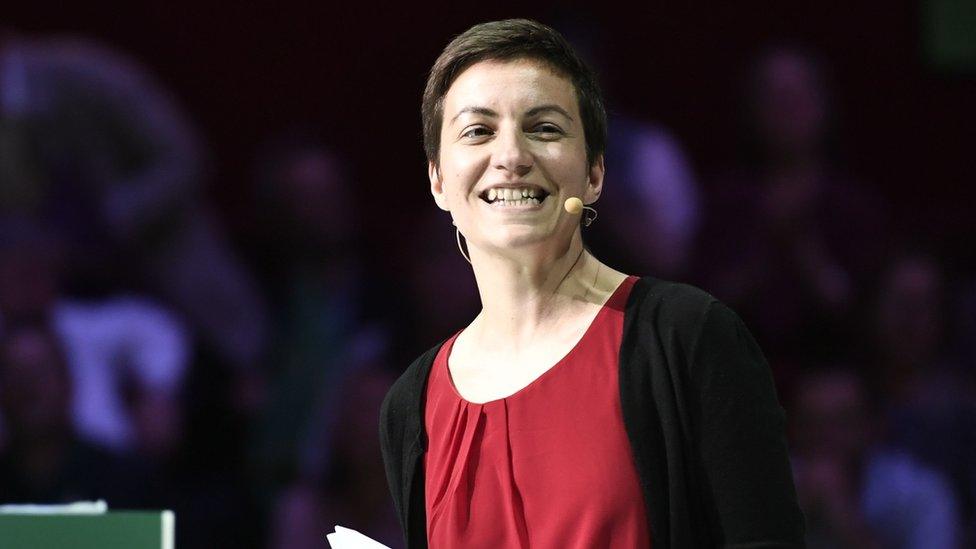
Ms Keller, 37, has a masters in Islamic Studies, Turkology and Jewish Studies
She became the first Green "Spitzenkandidat" (top candidate) in the 2014 European elections, and now she's eyeing a second shot at the top spot - European Commission President.
Ms Keller, 37, has been an MEP since 2009. She has a master's in Islamic Studies, Turkology and Jewish Studies.
She has long campaigned against corruption in the EU, and promotes policies that protect the environment.
Peter Lundgren: Swedish nationalist facing abuse allegations
The top candidate of the nationalist Sweden Democrats (SD) was caught up in allegations of sexual harassment during the campaign.
Mr Lundgren is a former truck driver who has been an MEP since 2014.
His party was the most critical of the EU in Sweden's election, but currently calls for reforms rather than leaving the bloc.
The party champions anti-immigrant policies, blaming a rise in sexual attacks reported to police in Sweden on increased immigration.
Swedish prosecutors have opened an investigation into allegations that Mr Lundgren sexually harassed a party colleague.
He has admitted improper behaviour, blaming alcohol, but has reportedly not been disciplined by his party.
Jorge Buxadé: Spanish lawyer with a controversial past
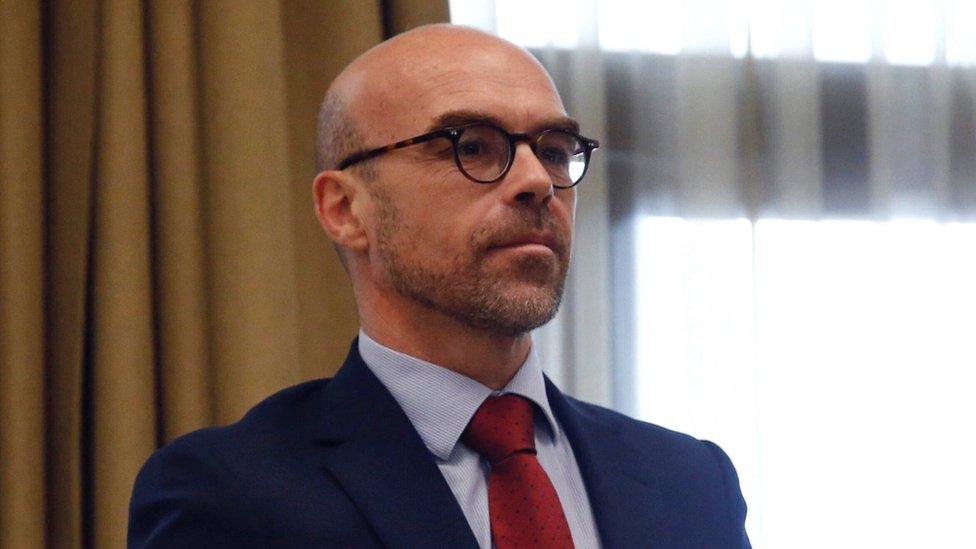
The far-right Vox party has enjoyed a recent surge in support in Spain
The Catalan lawyer, 44, says he wants to disrupt things in Brussels but is less eager to discuss his past links to fascism.
The far-right Vox party, for whom he is the lead candidate, opposes Catalan independence and promotes Spanish nationalism.
The new party has enjoyed a recent surge in support in Spain.
Critics describe it as a nationalist throwback to the dictatorship of Francisco Franco.
In the 1990s, Mr Buxadé twice stood as a candidate for Falange Española - a nationalist group founded in the 1930s that was influenced by Italian fascism.
In an interview with Politico, he said he had "gone through a whole intellectual evolution", external since then.
- Published14 May 2019
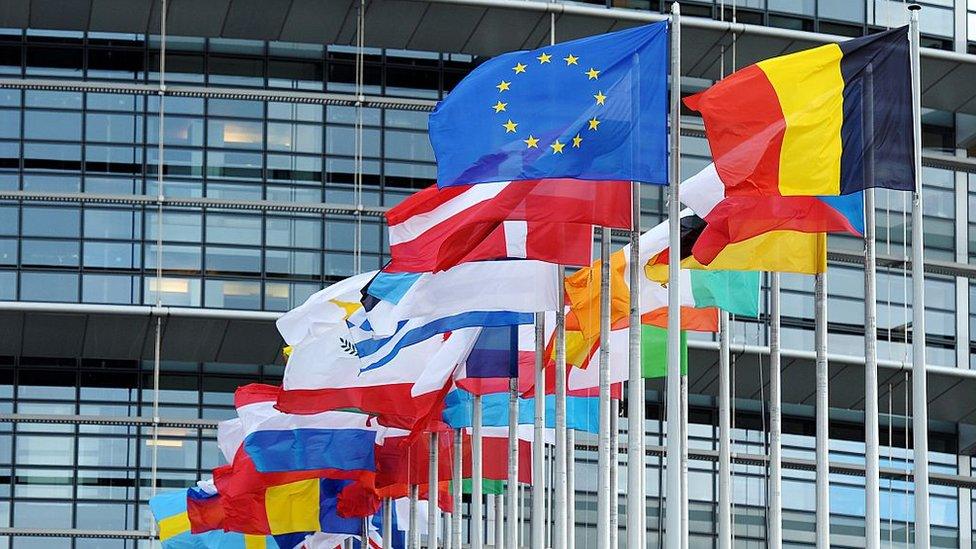
- Published11 December 2019

- Published29 April 2019

- Published23 May 2019
